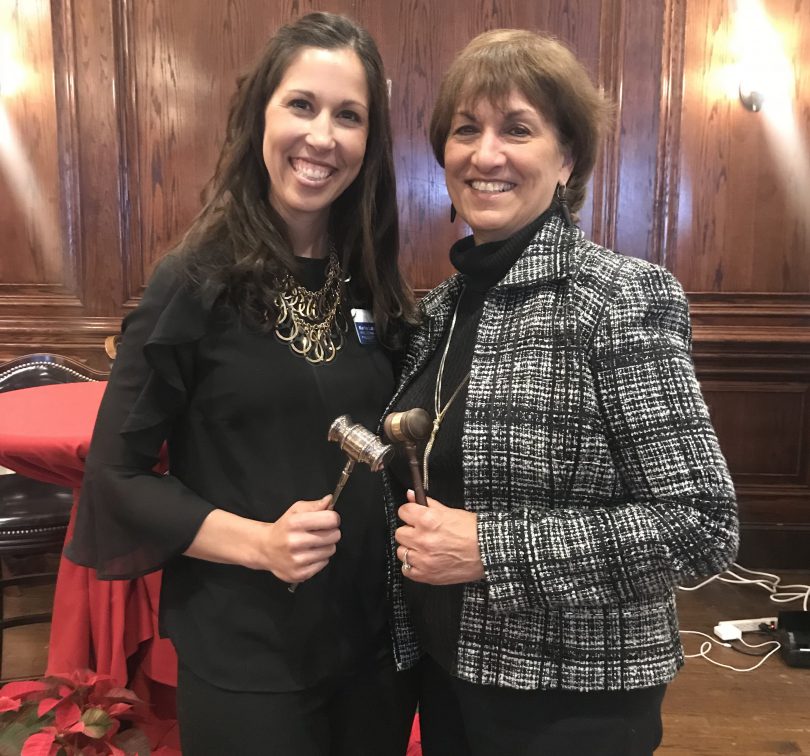For a PR professional, sometimes the best mentor is one who’s closest to home. Karlie Lahm, APR, current PRSA Georgia President, has built a career that in many ways parallels that of her mother, Judy Stanton, APR, who served as PRSA Miami President in 1985.
Karlie is senior director of public relations for FOCUS Brands. Judy is mostly retired from a career in health-care communications, but still freelances for clients. Both now live in the Atlanta area.
In honor of Mother’s Day, they shared their insights on personal and professional guidance, PRSA engagement, changes in the profession, and finding balance among it all:
How did you get into the PR profession?
Karlie: My degree is in public relations from the University of Florida (UF). In one class, we were asked to write a release based on a police report. I uncovered the perfect news angle and something clicked for me. During my student years my mom would review my papers and even give me deadlines. She encouraged me to join PRSSA in college and PRSA as soon as I graduated. I got my first job from a connection at PRSA Georgia’s Real World conference, which my mom had recommended I attend.
Judy: I also went to UF, but studied journalism. I started out working for a small-town newspaper, and then for many years I was director of PR for Mount Sinai Medical Center in Miami. From there, I did freelance PR work for several health care organizations.
When we moved to Atlanta, I worked at the Shepherd Center — a private, not-for-profit hospital — then for Northside Hospital, and then as an independent counselor. For me, health care public relations was about putting the hospital or client in a positive light. They were doing good work and I believed in them, so health care was a natural fit for me.
Karlie, how did observing your mother’s work in the profession and also in the local Chapter inspire you?
Karlie: I remember The Miami Herald did a feature on my mom in the ’80s about flexible work hours, long before they became as prevalent as they are now. She worked full time, had her own home office and served in a leadership role. But she was always there for me when I got home from school and she never sacrificed family time. If anything, she involved us in her work. After watching her do it all when I was growing up, I’ve never known any other way.
Judy, how did you feel when Karlie assumed leadership roles in the Georgia Chapter?
Judy: Seeing her go into the same profession as mine has been really special. I was so proud of her when she became Chapter president. I always thought it would happen, but later in her career. Her dad and I were both there for the gavel-passing. It was heartwarming.
What changes have you both seen in the profession since you started?
Judy: Thirty years ago, public relations gave you a more defined work week, closer to a 9-to-5 weekday job, which provided a better balance for having a family. Nowadays, with cellphones and remote email, PR professionals are expected to be on-call 24/7.
Social media and the internet have also [created] big changes, and over the years Karlie has given me pointers on using them. I’m impressed by Facebook campaigns that get people motivated. I worked on one for a client, and Karlie helped me set up the page.
Karlie: Some of the tools we have now, such as media databases, are different. My mom used to build a list of contacts. I taught her how to research a database and export a media list.
Judy: To create brochures, we used to have to go to a printing press. To make edits, they would literally cut out the words.
Karlie: I remember learning to create press kits in a college class. That feels like an obsolete tactic now.
What hasn’t changed in PR?
Judy: Doing something good and telling people about it. Believing in your client and feeling passionate about what they do.
Karlie: Writing is still key, along with planning and being organized.
How do you share what you’ve learned with others?
Judy: I’ve always had interns; it’s a good opportunity to provide the same kind of mentoring that you might for your own child. I taught public relations at Florida International University, and always enjoyed working with young people and guiding them.
Karlie: I saw my mom helping her students, which taught me to do the same. I encourage interns to meet other people in the PR community — at an agency, at a Chapter luncheon etc. Our local conference also helps expose young people to different professional paths. I have mentors and have mentored many professionals through the Accreditation process. It’s important for the Chapter, for my role and for me personally, to support others along the way.
Marci Davis is communications-practice leader at Jacobs Engineering. She is also PR committee co-chair for PRSA’s Georgia Chapter.







